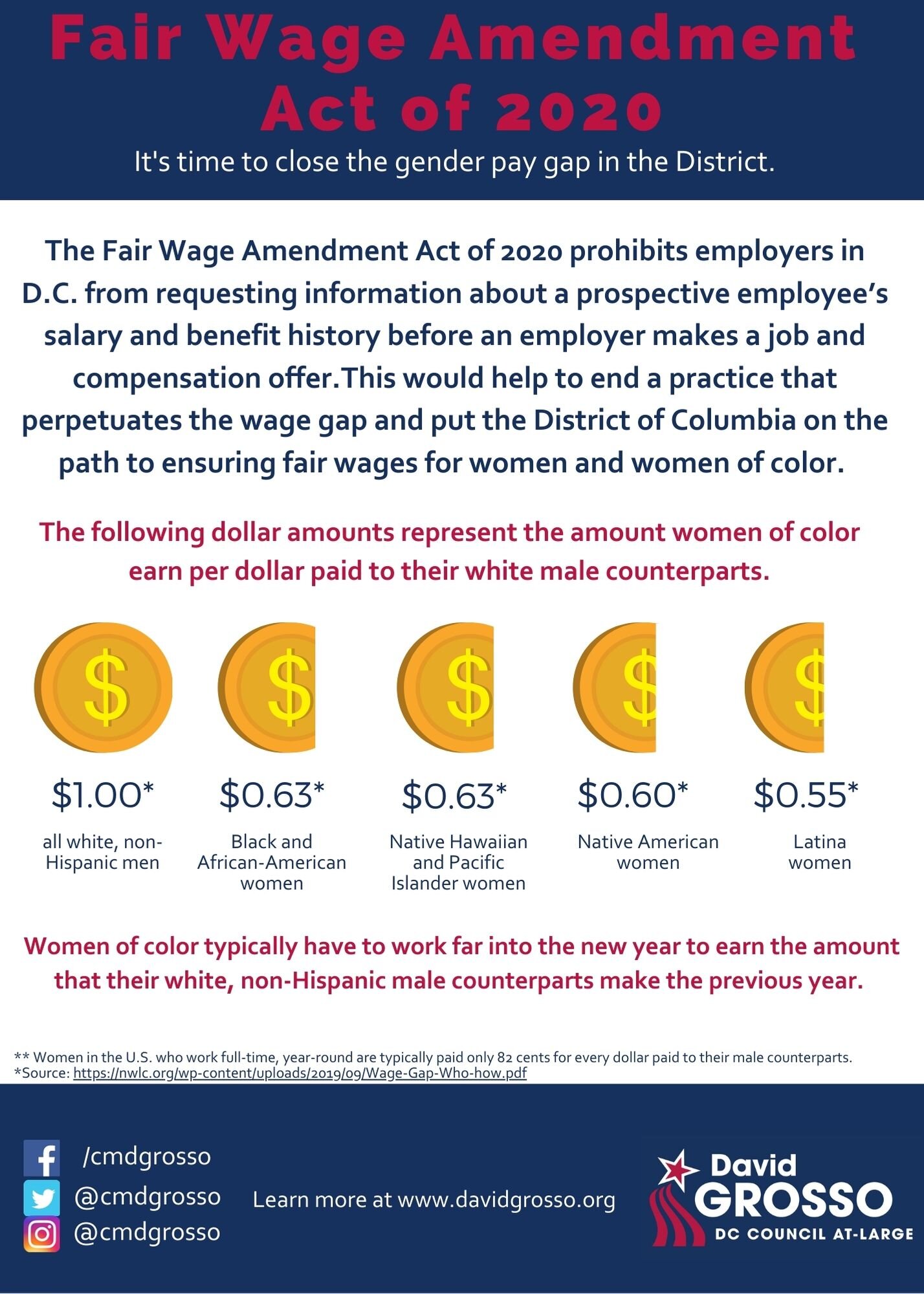For Immediate Release:
October 29, 2020
Contact:
Matthew Nocella, 202.724.8105 - mnocella@dccouncil.us
Ahead of Latina Equal Pay Day, Grosso re-introduces bill to address the gender and racial pay gap in D.C.
Washington, D.C. – In advance of Latina Equal Pay Day, Councilmember David Grosso re-introduced legislation yesterday to address the persistent pay inequities that women, especially women of color, experience in the District of Columbia.
“Leaving a job that is unfairly compensating you is no guarantee that your pay will be much better when employers make job offers based on previous, deflated wages. We can break that cycle,” Grosso said.
The Fair Wage Amendment Act of 2020 would prohibit employers in the city from requesting information about a prospective employee’s salary and benefit history before an employer makes a job and compensation offer. This would help to end a practice that perpetuates the wage gap.
The introduction comes as advocates recognize today, October 29, as Latina Equal Pay Day. The day signifies the day in the new year when the pay of Latina workers amounts to that of white, non-Hispanic men from the previous year. Latinas typically earn only 55 cents for every dollar earned by white, non-Hispanic men and must work nearly 23 months to earn what white men earn in 12 months.
“Closing the wage gap is not just a gender equity issue,” Grosso said. “The disparities that Black, Latina, and other women see in their paychecks compared to their white peers makes this a racial justice issue.”
According to the National Women’s Law Center, women in the U.S. who work full-time, year-round are typically paid only 82 cents for every dollar paid to their male counterparts. As a result, women earn $10,157 less per year, leaving them and their families shortchanged. The pay gap is even wider for women of color who earn even less and must work far into the following year to make the amount that their white, non-Hispanic male counterparts earn.
Black, Native Hawaiian and Pacific Islander women typically make only 63 cents for every dollar paid to their white, non-Hispanic male counterparts, whereas for Native American women it is 60 cents. As of now, the wage gap translates into an annual loss of approximately $24,110 for Black women, $29,098 for Latinas, and $24,656 for Native American women.
“Equal pay for equal work is a simple concept. Yet, even in D.C., the wage gap that women experience persists.”
Councilmember Grosso first introduced this legislation in 2016.
###

